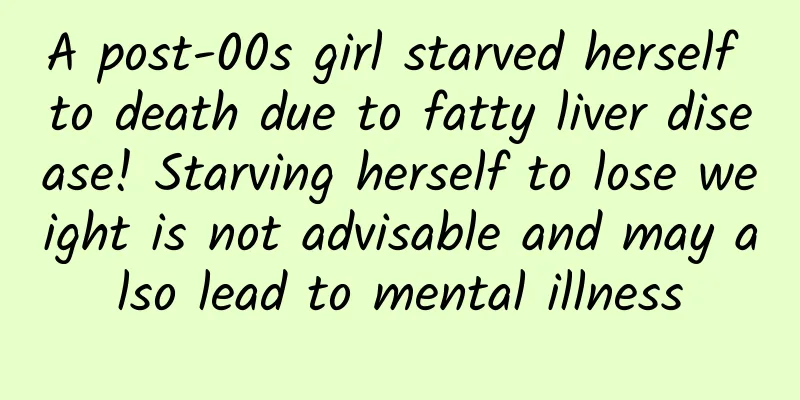What is the key to preventing colorectal cancer?

|
Rectal cancer is a malignant tumor that originates from the epithelial cells of the rectal mucosa. It occupies an important position among the common malignant tumors of the gastrointestinal tract. Although its specific cause has not yet been clarified, studies have shown that the occurrence of rectal cancer is closely related to environmental and genetic factors. In most cases, the development of rectal cancer originates from adenomatous polyps, a process involving the participation of multiple genes, making the disease more complicated. As people study colorectal cancer in depth, a series of high-risk factors are gradually recognized. Rectal adenoma, inflammatory bowel disease, age over 50, long-term smoking, excessive drinking, obesity, lack of exercise and other bad lifestyle habits may all be the cause of colorectal cancer. Among these high-risk groups, the importance of early detection and intervention is self-evident. There are no obvious symptoms in the early stage of rectal cancer until the tumor develops to a certain extent and begins to affect defecation or cause bleeding and other symptoms. These symptoms include but are not limited to blood in the stool, frequent stool, thin stool, mucus in the stool, anal pain, tenesmus, constipation, etc. Therefore, patients with the above symptoms should be highly alert to the possibility of rectal cancer. Treatments for rectal cancer include surgical resection, radiotherapy, chemotherapy, and targeted therapy. With scientific and reasonable treatment, most patients can achieve long-term survival. However, the treatment of rectal cancer is not achieved overnight. After recovery, patients still need long-term follow-up and health management to prevent recurrence. Therefore, the key to preventing colorectal cancer lies in early detection, early diagnosis and early treatment. When patients frequently experience unexplained abdominal pain, blood in the stool, abdominal masses, and recent weight loss, fatigue and other symptoms, the possibility of colorectal cancer should be considered, and it is recommended to seek medical treatment in time and receive professional diagnosis and treatment. At the same time, the general public should also raise awareness of cancer prevention, develop good living habits, and reduce the risk of colorectal cancer. Rectal cancer is a malignant tumor of the primary rectal mucosal epithelium. It usually occurs in men between the ages of 40 and 80. It is generally recommended to go to a regular hospital for a surgical examination and diagnosis. The doctor will formulate a reasonable treatment plan based on the condition. Today we are going to share a case of a 66-year-old male rectal cancer patient. Let's take a look. In May 2022, 66-year-old Lao Guo (pseudonym) began to feel anxious due to sudden constipation. After observing for a period of time, Lao Guo decided to go to the hospital for examination. The results of the colonoscopy showed that irregular bulges of the rectum were visible 4 cm away from the anus, and the pathological results showed moderately differentiated adenocarcinoma of the rectum. On June 1, 2022, Lao Guo’s family still could not accept the result, so they went to a cancer hospital in Beijing for examination. The results of the pelvic MRI showed: a mass in the lower rectum, considered to be rectal cT3aN2b. At this point, Lao Guo's family gradually accepted this fact. In order to make the old man calm down, no one in the family told the truth, but just told him that there was a polyp in his rectum so that the patient could receive follow-up treatment. In July 2022, Lao Guo underwent chemotherapy, the specific dosage is unknown. On October 21, 2022, Mr. Guo underwent transanal local resection for rectal cancer. Postoperative pathology showed no residual cancer and comprehensive efficacy evaluation: pCR. In November 2022, Lao Guo underwent 4 cycles of postoperative adjuvant chemotherapy with the XELOX regimen. In March 2023, Mr. Guo’s abdominal CT results showed changes after local rectal resection and new nodules in the middle section. In order to obtain further treatment, Lao Guo's family members found out about Director Shen Ge of Beijing Fengtai Youanmen Hospital and hoped that Director Shen would continue to develop a treatment plan for Lao Guo. After meeting Director Shen, Director Shen determined that the patient had rectal adenocarcinoma based on the patient's medical history and pathological diagnosis. After explaining the patient's condition in detail to the family, he recommended that the patient complete hospital assistance and laboratory tests, and receive symptomatic treatment under the premise of protecting the functions of various organs and providing nutritional support. On July 13, 2023, Lao Guo's radiotherapy plan has been completed. Specific treatment plan: Dt: 6000cGy/30f, 200cGy/single dose. The patient's family has been informed of the adverse reactions, complications, prognosis of the disease and precautions during radiotherapy, and signed the radiotherapy informed consent form. On July 21, 2023, Lao Guo completed his sixth radiotherapy. The radiotherapy process went smoothly and the patient showed no obvious discomfort. Radiotherapy will continue and the patient's condition will be closely observed. On August 3, 2023, Lao Guo completed his 15th radiotherapy. The patient reported that his bowel movements increased, his urination was normal, and his platelet count was low. Considering that it was related to radiotherapy-related side effects, he was given 15,000 IU of recombinant human thrombopoietin injection subcutaneously to treat thrombocytopenia, and intestinal probiotics were given to support symptomatic treatment. On August 11, 2023, Lao Guo completed his 21st radiotherapy. After being treated with intestinal probiotics, the patient's bowel symptoms were relieved, but anal pain occurred. Diosmin tablets were given to relieve adverse reactions such as anal swelling. On August 25, 2023, Lao Guo completed all radiotherapy. The anal swelling and low platelet count have completely disappeared. His general condition is now good and his vital signs are stable. After examining the patient, Director Shen pointed out that the patient has completed all radiotherapy, has no radiotherapy-related adverse reactions, and can be discharged from the hospital. Lao Guo's son said that his father had always been in good health, and he paid great attention to his health and rarely got sick. So when he felt the changes in his body, he went to the hospital immediately. He didn't expect to be diagnosed with cancer, which was a bit hard for him to accept. Fortunately, he finished the treatment without telling him, and he felt relieved. He also suggested that everyone should go to the hospital for examination and treatment as soon as possible after getting sick to avoid being deceived. |
<<: 【Couple Cancer】What? Can cancer be contagious?! The truth is here↓
>>: 12 kinds of food that promote poop, banana is unexpectedly ranked last (anal need)
Recommend
My ankles ache slightly when it rains. Is this a disease?
Author: Tang Qin, Researcher of Chinese Medical A...
How can women around 40 years old improve their scanty menstrual flow?
Menstruation is a physiological cycle. About ever...
Treatment of infertility in women
In modern society, many female friends often drin...
Right breast solid nodule
There are many common breast diseases in women. W...
After the abortion, water flows down
What is the reason for water discharge from the v...
What are the reasons for my period to come ten days early?
Many women will find that they have symptoms of i...
Acne during early pregnancy
It is easy to have symptoms of acne in the early ...
How does your belly feel when you're pregnant?
Many women don’t know much about pregnancy, and d...
Can cervical erosion cause amenorrhea?
Cervical erosion is a common "killer" t...
Thirty-six weeks fetal development
After having a baby, all the focus of the family ...
How to remove private odor?
If a woman's private parts have an odor, she ...
Are the hairy crabs sold on e-commerce platforms reliable? How are the hairy crabs sold on e-commerce platforms?
We all know that hairy crabs are a popular autumn...
What causes ovarian cysts during pregnancy?
What should I do if I have ovarian cysts during p...
Which day is more suitable for giving gifts, Christmas Eve or Christmas? What gifts are better for Christmas Eve in 2020?
Every Christmas Eve, whether it is a couple or a ...
The reason why there are blood clots during menstruation after abortion
Abortion is not unfamiliar to many women, but man...









